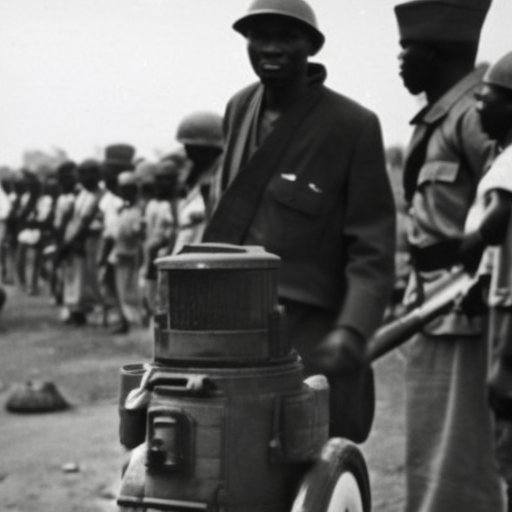The Nigerian Civil War: A Summary
The Nigerian Civil War, also known as the Biafran War, was a conflict that took place in Nigeria from 1967 to 1970. It was fought between the Nigerian government, led by General Yakubu Gowon, and the secessionist state of Biafra, led by Colonel Odumegwu Ojukwu. The war was primarily driven by ethnic and political tensions between the Igbo people, who dominated the southeastern region of Nigeria, and the rest of the country.
Causes of the Conflict
The roots of the Nigerian Civil War can be traced back to Nigeria’s colonial history and the subsequent struggle for independence. After gaining independence from Britain in 1960, Nigeria faced numerous challenges, including ethnic divisions, economic disparities, and political instability. The Igbo people, who were concentrated in the southeastern region, felt marginalized and believed they were being denied their fair share of political power and economic resources.
In May 1967, Colonel Ojukwu declared the secession of the southeastern region, establishing the Republic of Biafra. The Nigerian government, however, refused to recognize Biafra’s independence, leading to the outbreak of hostilities.
Course of the War
The Nigerian government launched a military offensive to crush the secessionist movement. The Nigerian military, with its superior numbers and resources, quickly gained the upper hand. Biafra, on the other hand, struggled to maintain its independence due to a lack of military equipment, ammunition, and international support.
The war was characterized by intense fighting, including air strikes, artillery bombardments, and ground battles. Both sides committed numerous human rights abuses, including massacres, starvation, and displacement of civilians. The blockade imposed by the Nigerian government on Biafra led to a severe humanitarian crisis, with millions of people facing starvation and disease.
International Involvement
The Nigerian Civil War attracted significant international attention. The Nigerian government received support from several countries, including the United Kingdom, the Soviet Union, and Egypt. These countries provided military assistance, including weapons and training, to the Nigerian military.
Biafra, on the other hand, struggled to gain international recognition and support. Despite the efforts of Biafran diplomats and sympathizers, only a few countries, such as Gabon and Tanzania, recognized Biafra as an independent state. The lack of international support further weakened Biafra’s position and contributed to its eventual defeat.
End of the War
By 1970, Biafra was on the brink of collapse. Its military forces were severely depleted, and its civilian population was suffering from starvation and disease. In January 1970, Colonel Ojukwu fled into exile, and Biafra surrendered to the Nigerian government.
The end of the war marked the reunification of Nigeria, but it also left deep scars. The conflict resulted in the deaths of an estimated one to three million people, mostly civilians. It also exacerbated ethnic tensions and mistrust within Nigeria, which continue to shape the country’s politics and social dynamics to this day.
Legacy and Lessons
The Nigerian Civil War had a profound impact on Nigeria and its people. It highlighted the need for greater political inclusivity, economic development, and respect for human rights. The war also underscored the dangers of ethnic and regional divisions and the importance of fostering national unity.
Since the end of the war, Nigeria has made progress in addressing some of these challenges. However, the country continues to grapple with issues of corruption, inequality, and insecurity. The legacy of the Nigerian Civil War serves as a reminder of the importance of peaceful coexistence, dialogue, and the pursuit of justice in building a stable and prosperous nation.












